Health Sharing Plans are emerging as one of the most effective and flexible alternatives to traditional health insurance. In this updated side-by-side healthshare plans comparison guide, we rate and review the best and most affordable options that are currently available.

What Are the Best Health Sharing Plans in America?
We’ve reviewed some of the most affordable and popular options out there, including Altrua, DPC Direct, HSA Secure, Medi-Share, netWell Healthshare, JHS Community, Liberty, OneShare Health, Universal Thrive, Sedera, Samaritan, Universal Healthshare, and United Refuah. These are the plans that our clients love and our healthshare experts recommend.
Stick with us till the end, and we’ll share our top pick for the most budget-friendly alternative to health insurance.
Compare Pricing on the Best HealthShare Plans Available
Health Sharing Plans Comparison [2025 Update]
Note: The contribution amounts have been updated for 2025. These amounts reflect the price for individual plans, and can vary depending on how you structure your plans. Adding family members to your healthshare plan will also increase the monthly cost.
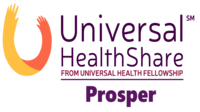
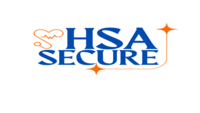

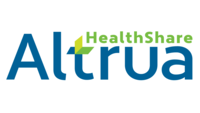
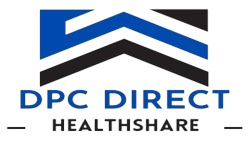

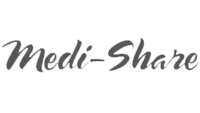

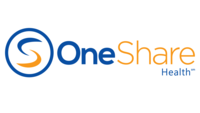

Sedera Health
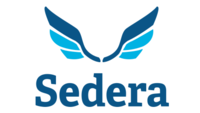

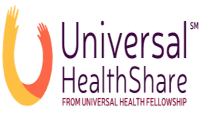
Schedule a free appointment with one of our Personal Benefit Managers
Top Healthshare Plans FAQ – Frequently Asked Questions About Healthcare Cost Sharing, HCSMs, and More
Q: What is a Healthshare Plan?
A: Health sharing plans, also known as medical cost sharing plans, are an alternative to traditional health insurance plans. Members of healthshares agree to share their medical expenses, and they each contribute to the pool of money that is used to pay those medical bills.
For many reasons, health sharing plans are much less expensive than unsubsidized health insurance, which has made them a popular option for individuals and small businesses facing high health insurance costs.
Q: Health Sharing Plans vs. Insurance: What is the Difference?
A: Because health sharing plans are not the same as health insurance, the rules are a bit different. Here are some of the primary differences between health share plans and health insurance that you need to be aware of:
- Health share plans are not required to cover the same minimum essential benefits as ACA health insurance plans. This makes them more affordable, but less comprehensive than traditional insurance.
- Health sharing organizations can make their own rules on what medical costs are shared and how the money is distributed. Every health sharing plan is a little bit different in how it works.
- Many health share plans have restrictions or waiting periods for pre-existing conditions. You might need to pay into the plan for 1 or more years before certain medical costs are shared.
- Health care cost sharing is usually about half the cost of unsubsidized health insurance. This has encouraged hundreds of thousands of Americans to make the switch in recent years.
Q: Are Healthshare Plans Legitimate?
A: Healthcare sharing plans are a legitimate and legal alternative to health insurance. Unlike insurance, healthshare plans are designed to protect people against their most critical medical costs. Meanwhile, they’re not wasting your money on all the extra coverage that is never being used.
Q: Which is Better Medi-Share or Liberty Healthshare?
A: Of the two, we more often recommend Medi-Share due to their size and years of experience they have. But there are several other plans that are also popular with our clients, including HSA Secure, OneShare, and JerichoShare.
Q: Is Healthcare Sharing Right for Me?
A: If you’re looking for a more affordable alternative to traditional health insurance, and you don’t use your coverage that much, then healthcare sharing programs could be a great fit.
If you have serious or ongoing health needs, on the other hand, then a traditional insurance plan might be the better option. ACA health insurance can have better overall rates if you factor in ongoing prescriptions drugs, chronic conditions, tobacco use, and more.
Q: What is the Top Healthshare Plan in 2025 according to member ratings?
A: MediShare has a 98% member satisfaction rate. Not all healthshare programs publish their member satisfaction rates. This makes it difficult to confirm that MediShare is the best reviewed healthshare plan, but it does seem likely.
We’ll also note that member ratings for HSA Secure have gone up dramatically over the last few years. Some experts are crediting this to their new specialized plan options designed to work with HSAs and DPCs.
Learn More About Healthshare Plans
At about half the cost, it is no surprise that millions of Americans have already ditched their insurance. Switching to a health care sharing program can be an ideal way to save money on monthly health care costs.
It’s important to remember that not all plans are a one-size-fits-all solution. Opting for a plan without fully understanding your needs might lead to gaps in coverage, unexpectedly increasing your costs.
When you choose the right health sharing plan tailored to your specific needs, you can save thousands of dollars a year on your health care expenses.
If you are interested in learning more about healthcare sharing, or are curious whether you are currently signed up for the best plan, give us a call.
If you prefer to explore at your own pace, visit our Healthshare plans page for an instant Healthshare quote. There, you can easily review your options and even find tips on how to select the right plan for you and your family.
For Further Reading:
- What is Christian Health Insurance?
- Do Health Sharing Plans Work for Businesses?
- Medical Cost-Sharing: A Viable and Attractive Alternative to Traditional Health Insurance
- Health Sharing Organizations Keep Big Government out of Your Healthcare
- Combine Health Sharing With HSAs! Here’s How.
- Healthshare vs. Health Insurance: Which Is Right for You?
Schedule a free appointment with our Personal Benefit Managers.

Wiley is President of HSA for America. He believes that consumers should have choice and price transparency, so they can make the best healthcare decisions for their needs. Read more about Wiley on his Bio page.



